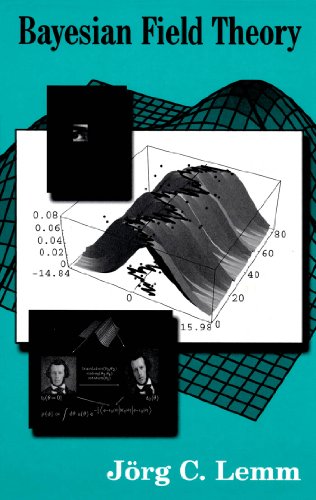
Bayesian Field Theory
by J. C. Lemm
Publisher: arXiv.org 2000
Number of pages: 200
Description:
Bayesian field theory denotes a nonparametric Bayesian approach for learning functions from observational data. Based on the principles of Bayesian statistics, a particular Bayesian field theory is defined by combining two models: a likelihood model, providing a probabilistic description of the measurement process, and a prior model, providing the information necessary to generalize from training to non-training data.
Download or read it online for free here:
Download link
(1.7MB, PDF)
Similar books
 Topics in Random Matrix Theory
Topics in Random Matrix Theoryby Terence Tao
This is a textbook for a graduate course on random matrix theory, inspired by recent developments in the subject. This text focuses on foundational topics in random matrix theory upon which the most recent work has been based.
(14654 views)
 Design of Comparative Experiments
Design of Comparative Experimentsby R. A. Bailey - Cambridge University Press
This book develops a coherent framework for thinking about factors that affect experiments and their relationships, including the use of Hasse diagrams. The book is ideal for advanced undergraduate and beginning graduate courses.
(23805 views)
 Probability and Statistics
Probability and Statistics- UCLA
This book is developed as a free, collaborative and interactive learning environment for elementary probability and statistics education. The book blends information technology, scientific techniques and modern pedagogical concepts.
(18805 views)
 Probability, Statistics and Stochastic Processes
Probability, Statistics and Stochastic Processesby Cosma Rohilla Shalizi
Contents: Probability (Probability Calculus, Random Variables, Discrete and Continuous Distributions); Statistics (Handling of Data, Sampling, Estimation, Hypothesis Testing); Stochastic Processes (Markov Processes, Continuous-Time Processes).
(12422 views)